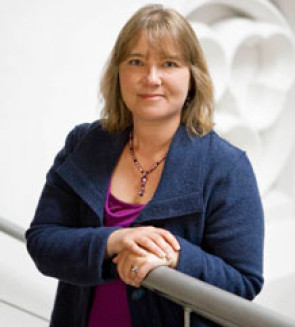
Prf Jane Seale
Professor In Education & Ref Unit Panel Chair
Biography
Professional biography
I graduated from Plymouth Polytechnic in 1987 with a degree in psychology. I went on to join the Computer Applications to Special Education Research Unit at Keele University where I completed my PhD focusing on the management of special needs technology in adult special education. In 1993 I joined Southampton University, taking on various roles including lecturer in higher education and innovation. Between 2000 and 2002 I set up the first ever UK based Masters in Assistive Technology at Kings College, London. In 2010 I became Professor in Education at Plymouth University, moving in 2013 to take up a position of Professor in Inclusive Education at Exeter University. I joined the OU in April 2016 in order to lead on REF related strategy and capacity-building for 100+ education researchers across the university.
I have developed a national and international profile in the field through key roles such as President of the Association for Learning Technology (2006-7) and Digital Inclusion consultant to the ESRC funded Technology Enhanced Learning (TEL) Programme in the UK (2009-2012). Between 2007 and 2010 I was Co-Director of the ESRC National Centre for Research Methods. I served on the REF 2014 Education panel in the UK which had the responsibility for assessing the quality of research conducted in UK universities.
Research interests
My teaching and research interests lie at the intersections between disability, technology and inclusion. My work focuses in particular on three areas:
- The role that technologies play in the lives of people with learning disabilities. For example during the pandemic I examined whether and how people with learning disabilities are being supported to use technologies to keep connected and stay well. Outcomes of this work include toolkit for support workers to enable them to support people with learning disabilities to use technologies and co-produced bespoke CPD resources for learning disability organisations such as KeyRing and Innovate UK.
- The factors that influence or sustain the digital exclusion of disabled learners in higher education. I led a Leverhulme Trust funded International Network of researchers from US, Canada, Israel, Germany and UK which examined solutions to the exclusion that disabled university students experience either through lack of access to technology or through inaccessible technologies.
- Developing and evaluating participatory research methods that promote voice and empowerment for disabled research partners. I contributed to a H2020 funded research study which used participatory methods to engage people with sensory and intellectual impairments in the design and evaluation of technologies that facilitates their access to museums.
Impact and engagement
I am currently working with a range of learning disability organisations to support them in developing and implementing digital inclusiion strategies that focus on enabling adults with learning disabilities to access and use everyday technologies and building capacity across the workforce to support technology access and use.
Publications
Book
Book Chapter
Scoping a future research agenda for disability and technology: issues to consider (2024)
Constructions of disability and technology and the shaping of future research (2024)
Accessible Inclusive Learning: Futures (2019)
Accessible Inclusive Learning: Foundations (2019)
From Pioneers to Partners: the changing voices of staff developers (2003)
Journal Article
Reimagining citizen science as inclusive praxis (2025)
How can people with intellectual disabilities be supported to engage in citizen science? (2025)
Taking risks to enable participatory data analysis and dissemination – A research note (2022)
Emergent analysis and dissemination within participatory research (2021)
A participatory approach to the evaluation of participatory museum research projects (2021)
Designing technologies for museums: accessibility and participation issues (2020)
Inclusive museums and augmented reality. Affordances, participation, ethics and fun (2019)
Inclusive research in education: contributions to method and debate (2014)
Other
Symposium Four: New Practices. Proceedings from the Ed-ICT International Network. (2018)
Proceedings of the Ed-ICT International Network. Israel Symposium: In Search of New Designs. (2018)
Proceedings of the Ed-ICT International Network Montreal Symposium: Stakeholder Perspectives (2017)
Preprint / Working Paper
Presentation / Conference
From participants to creators: Considerations for community-led citizen science (2022)